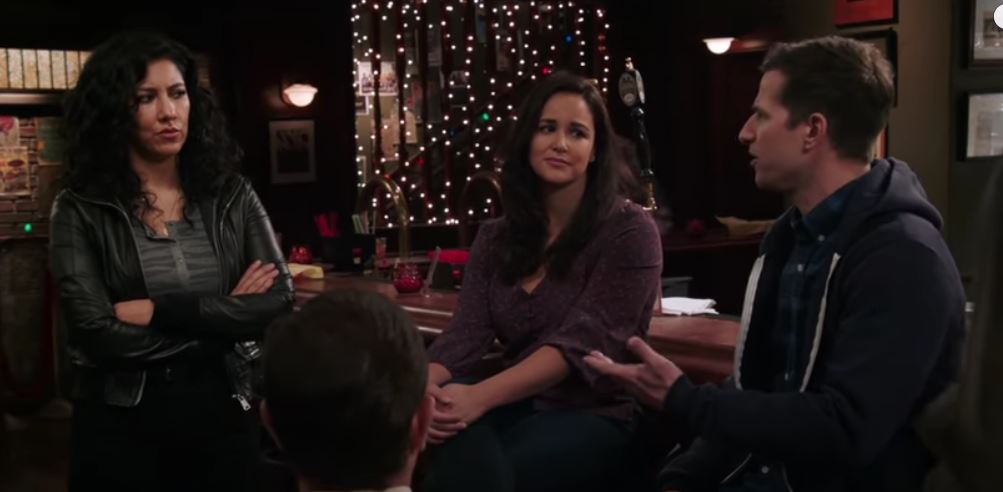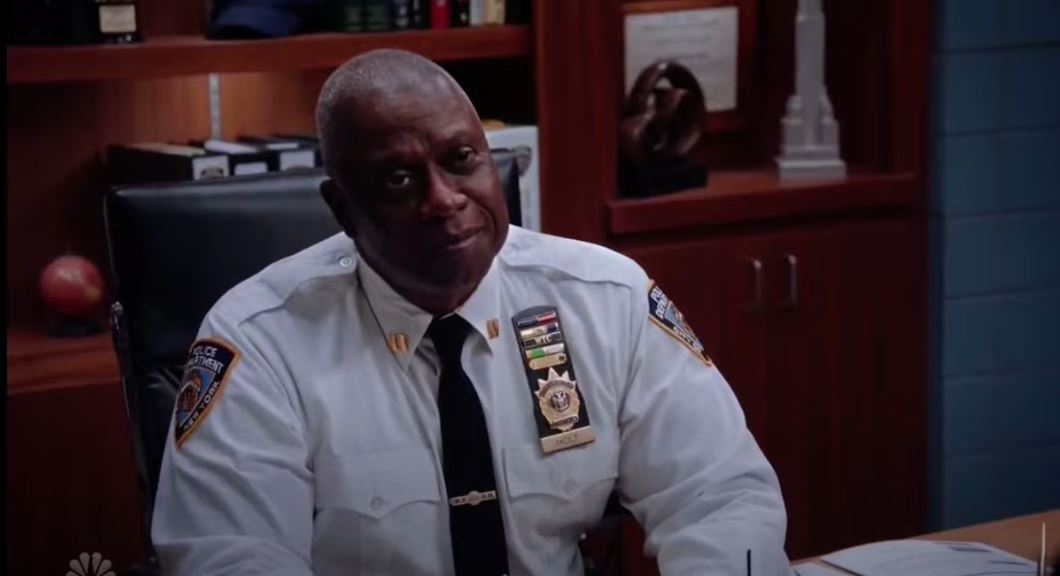Last year, I wrote about the difficulties cop shows like Brooklyn Nine-Nine face moving forward after the Black Lives Matter protests sparked after George Floyd’s death. These protests sparked a social awareness moving forward that cannot simply be forgotten. Too many minds have changed, and the opinion of police throughout the United States has simply changed.
Much of the opinion that is currently in the process of changing was formed by the multitude of cop shows that dominate the television landscape here in America. As such, this changing social landscape puts a new kind of pressure on the people who make all these cop shows. How would they respond to the BLM marches? Would they treat them with any respect or handwave them away with your usual single episodes painting police corruption and brutality as anomalies being fought by the “good ones,” that none of us need to worry about?

I think it is fairly fitting that Brooklyn Nine-Nine’s first episode was named “The Good Ones.” We will have to wait and see just how far they go to tackle these issues. I have to say that I am at least encouraged.
When the first cold open of the season is Rosa quitting the force, it is a pretty good sign that Brooklyn Nine-Nine is at least going to try and treat police brutality and corruption with more respect and attention than they have in the past. The main plot thread of the episode revolves around her new career as a private investigator helping victims of police brutality, and Jake tagging along on a case out of a predictable need for validation about remaining a cop.
It’s interesting to think back on Rosa in earlier seasons and have her be the one to eventually take such a stand against police violence. After all, she was the hard-ass dangerous member of the cast who relished in using physical violence. She was the poster girl for the kind of harmful tropes shows normalized for the many people who watch cop shows.
But in that way, and many others, it was fitting that Rosa Diaz be the one who quits the force in the very first episode. She has gone through a hell of a personal journey throughout the course of Brooklyn Nine-Nine. She has been through multiple relationships, come out as bisexual, reconnected with her parents, developed friendships and loves and new perspectives that changed her from the woman she was when the show began. Of the characters who would most directly connect to the communities and identities oppressed throughout America, she is right behind Captain Holt, if not right at his side.
I was worried about how exactly they would handle the premiere’s plot with the two officers who assaulted Rosa’s client. Typically, a single-episode plot such as this one would result in the Seven-Four’s chief getting the bodycam footage Rosa found, suspending or arresting the two guilty cops, and painting the situation as an outlier that good cops are always fighting against.
To have said chief instead delete the footage, launch into a lengthy explanation about why it needed to be covered up, blame the police union, and call herself “one of the good ones” who has to cover this up or otherwise be blackballed, was an appreciated acknowledgement of the reality of police in America. Let’s be real, this IS the reality of police in America.
It is not an easy truth, but I am glad Brooklyn Nine-Nine told the truth, and I’m glad Jake reacted the way he did. Every character generally reacted the way I expected, though some took precedence over others.
Of course Jake would take this newfound societal dislike of cops hard, especially when one of his best friends leaves, because it is a direct hit at his own need to be seen as a hero. Of course Boyle would go annoyingly overboard to prove he supports the black community to coworkers like Terry. And, best of all, of course Holt would feel this attack head on and lead to a dissolution of his marriage because of, as he says, being put in survival mode due to the stress created by COVID-19 and his role as a black gay police chief in a time of considerable hatred towards the police by the black community.

The second episode revolves around the break in Holt and Kevin’s marriage, and Jake’s need to get his two dads back together. The squad all accepts a long-standing invite to Holt’s lake house, Jake secretly tricks Kevin into showing up, and he spends the trip trying to get them to fall back in love with each other.
It’s a more conventionally funny episode of the show, but I do like this initial look into how Holt was impacted by 2020. Again, considering Holt is a gay black man who has fought for decades to carve a place for himself in the NYPD and change it from the inside, I can only imagine how BLM has impacted him. These are the kinds of stresses that do dissolve relationships and cause a person to revert to basic survival instincts.
Holt and Kevin reconciled enough to enter couples counseling, which is a nice compromise between the misery of them staying apart and the easy sentimental path where they just get back together. No one should ever look to Brooklyn Nine-Nine to be a realistic show that tackles subjects like these in depth, but they can at least go this far to treat their characters and these issues with respect. And sometimes they do surprise you with just how authentic and real they can be. Kevin and Holt’s relationship was a fantastic example of when they surprise you like that.
Thankfully, these episodes didn’t lose themselves in serious issues. It was still classic fun B99. Amy using Terry’s sex books to rekindle her relationship with Holt was peak Amy Santiago. Jakes’ disguise at the police union was fantastic. Rosa being high on edibles during the lake house trip was a never-ending gift, as was Terry loving hedges but hating ledges.
But I never doubted Brooklyn Nine-Nine being funny. That is almost always a given. I did worry that they would pull a Terry and hedge their bets about their portrayal of police post-2020.
There is still plenty of time for them to do so, of course, but this was a good start. Having one of your two or three most popular characters quit in the first scene is one hell of a way to make a statement, and I hope they follow through the entire season. I know I should not expect my dream scenario, where each member of the Nine-Nine finds a reason to leave throughout the season and they all go find better jobs somewhere where they do not contribute to a harmful legacy of fascist, racist abuse, but I can at least reasonably expect them to deal with its portrayal of police.
That is a good start. I hate that I’m holding a comedy show to this standard, but at the same time, go figure that a comedy show has already done a better job than the dozen police dramas out there.
Line of the Week: Amy responding to Boyle calling himself a natural mother by calling him “a natural motherf*cker.”
Images Courtesy of NBC
Have strong thoughts about this piece you need to share? Or maybe there’s something else on your mind you’re wanting to talk about with fellow Fandomentals? Head on over to our Community server to join in the conversation!

